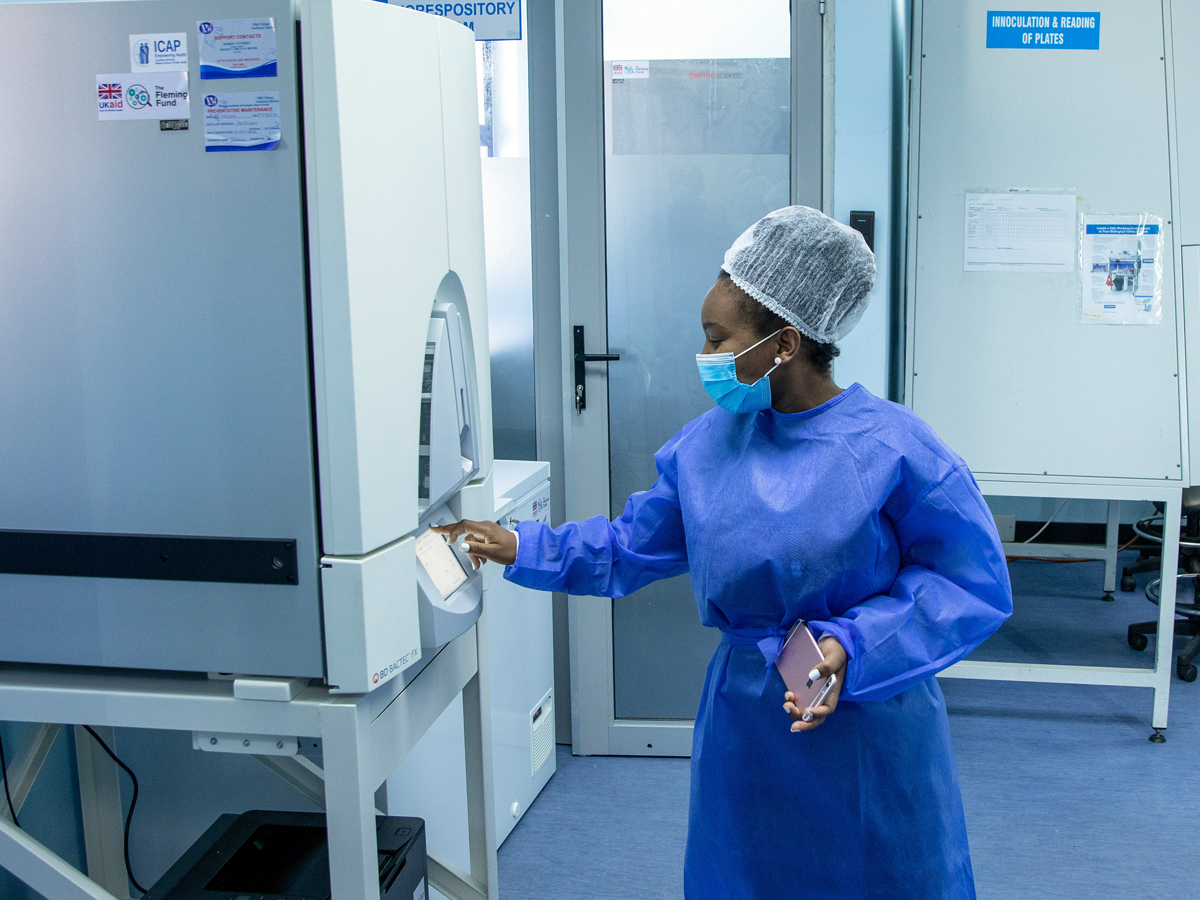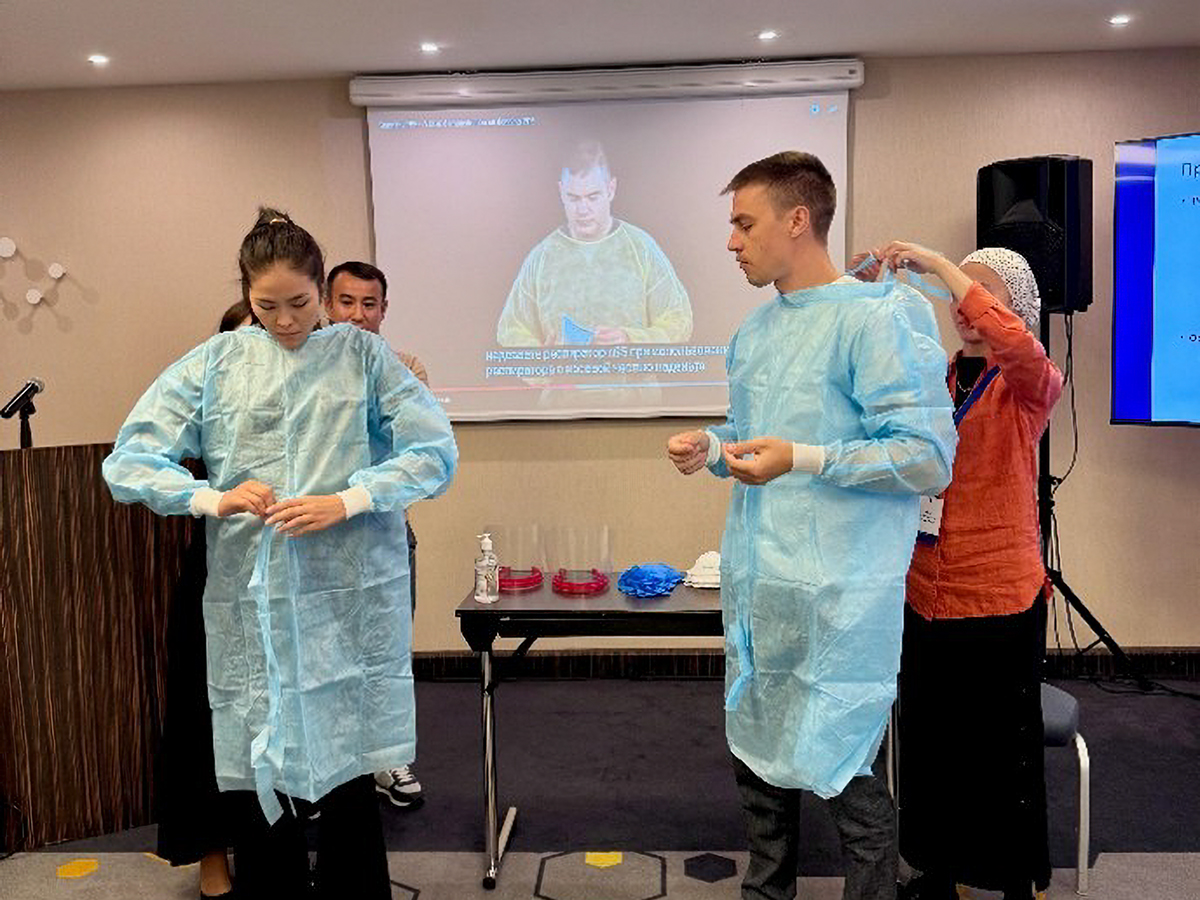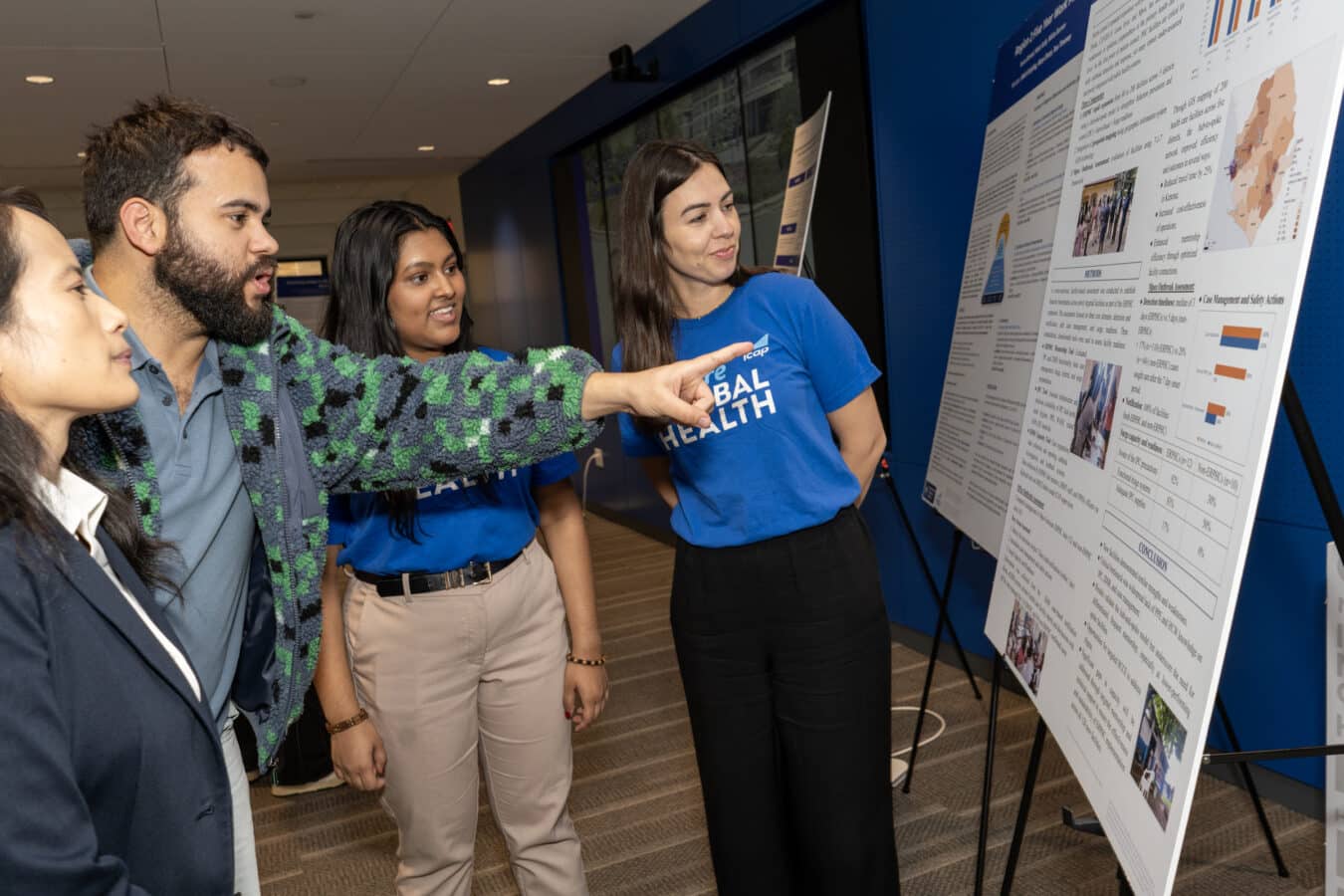Today, there are an estimated one billion migrants globally, who at any given time, are journeying across borders in search of opportunity, safety, or justice. Migration is a major social determinant of health – refugees and migrants are among the most vulnerable members of society, often facing discrimination, poor housing and working conditions, and limited access to health services. Mobility can also heighten vulnerability to HIV acquisition.
ICAP at Columbia University is answering the call to address these needs – by working to increase access to basic health services, as well as HIV prevention, care, and treatment services, for migrant and mobile populations around the world.
While HIV risk is generally low in Central America, key populations – including sex workers, transgender people, and people who inject drugs, among other populations – continue to face barriers to HIV prevention, care, and treatment in the region. Around Panama City, most female sex workers are also migrants, whose migratory status leaves many in fear of deportation, and thus, reluctant to visit health facilities. Access to health services for female sex workers in Panama is mainly mediated through NGOs, which organize health service delivery events in areas frequented by sex workers.
To improve access to pre-exposure prophylaxis (PrEP), which protects against HIV acquisition when taken as prescribed, ICAP in Central America collaborated with the NGOs Putamente Soñadoras, Probidsida, and Asociación Hombres y Mujeres Nuevos de Panamá, organizations dedicated to supporting the health of female sex workers and other key populations. Together, with support from the U.S. President’s Emergency Plan for AIDS Relief (PEPFAR) through the Centers for Disease Control and Prevention (CDC), the teams conducted community outreach to preform rapid HIV testing and deliver PrEP.
“PrEP access can be a challenge for migrant populations, and with other factors such as sex work, gaps in access to health services are even further magnified,” said Ricardo Mendizabal, MPH, ICAP country director in Central America. “Given that many migrants may not be familiar with the health structure of the country in which they are traveling, or are frequently moving internally and externally, the role of NGOs in designing strategies to reach these key populations is vital. Their collaboration is crucial for helping migrants and other mobile populations maintain adherence to HIV prevention strategies and consistency in ongoing testing.”
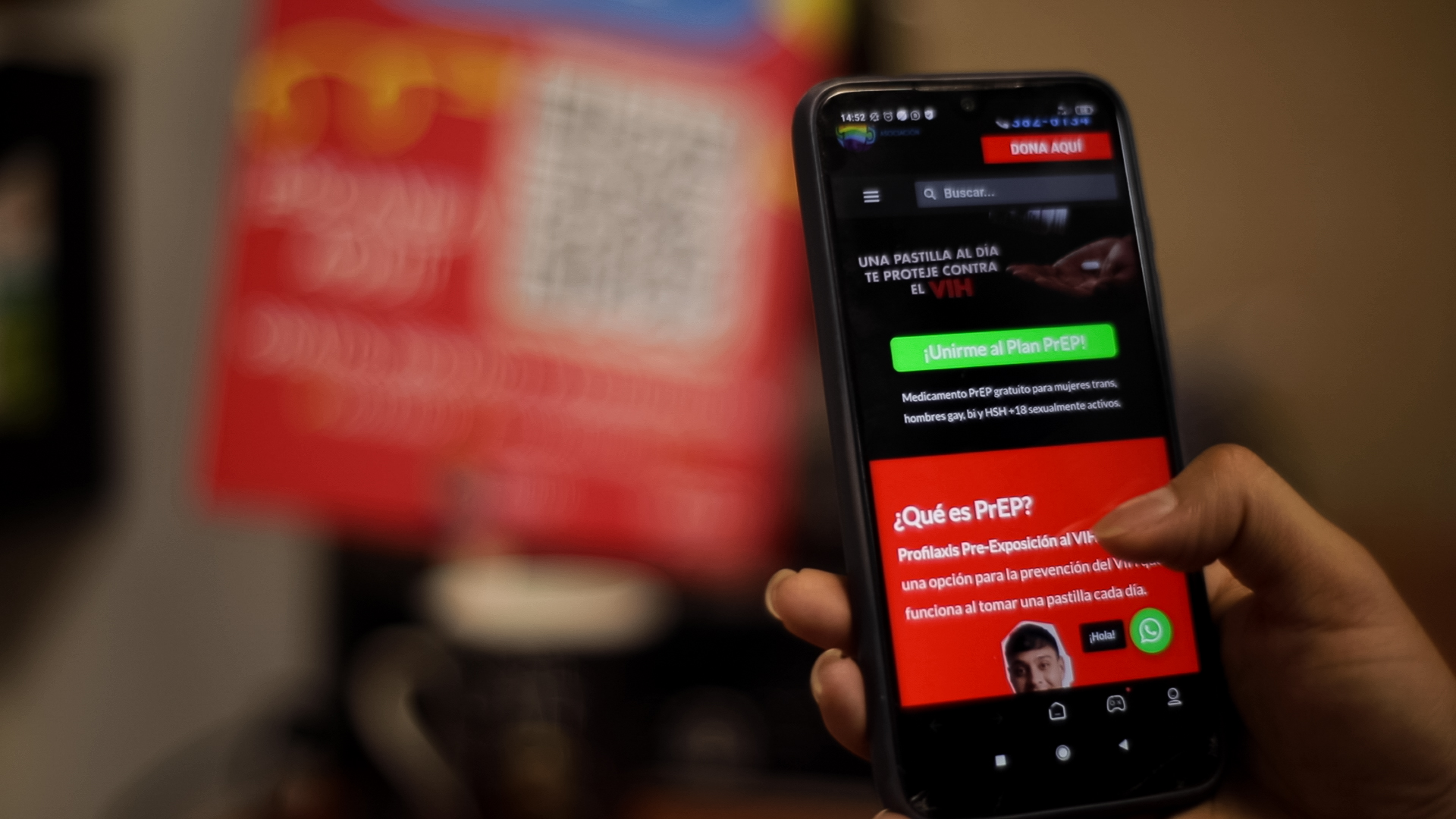
Those who were initiated on PrEP through the outreach events were given a one-month supply of the HIV prevention medication, which is free of charge. Close coordination with the Panama Ministry of Health made it possible to link clients to follow-up visits at public health facilities for continued care. More than 300 female sex workers have been reached through just two outreach events, with 100 people starting on PrEP and more than 200 being tested for HIV.
“Panama is attractive for many people from other countries seeking opportunity and relief from poverty,” said Yara Trujano, public relations coordinator at Putamente Soñadoras. “At Putamente Soñadoras, we work to dignify the lives of people in these situations, especially those who are involved in sex work, by providing them support in the next steps of their health journey and improving their access to HIV prevention, clothing, and food, among other assistance.”
In addition to Central America, ICAP is supporting the health of mobile populations in other parts of the world as well, including Mozambique, where numerous communities have been displaced due to armed conflict in Cabo Delgado. In Nampula, where thousands of internally displaced people reside, ICAP has established mobile brigades that provide services including HIV testing, tuberculosis (TB) screening and treatment, COVID-19 testing, initiation and continuation of PrEP and antiretroviral treatment, and condom distribution, in addition to other services. Also in Mozambique, ICAP designed a study to identify strengths and gaps in the health system response to the 2019 cyclones, Idai and Kenneth, which resulted in forced displacement of countless communities. The study demonstrated that the cyclones destroyed roads and subsequent access to health facilities, sanitary infrastructure, medication supply, and electromedical devices. These findings will help the government of Mozambique strengthen plans and actions to restore health services during and after disasters and better prepare for potential impacts on the health sector due to such emergencies.
In Uganda, ICAP and partners conducted the first population-based HIV impact survey of refugee populations. Reaching thousands of refugee households in Uganda, which hosts the most refugees in Africa, the survey sought to estimate HIV prevalence of people aged 15 years and above, prevalence of viral load suppression (VLS) among people living with HIV, and collect information on uptake of and access to HIV-related services.
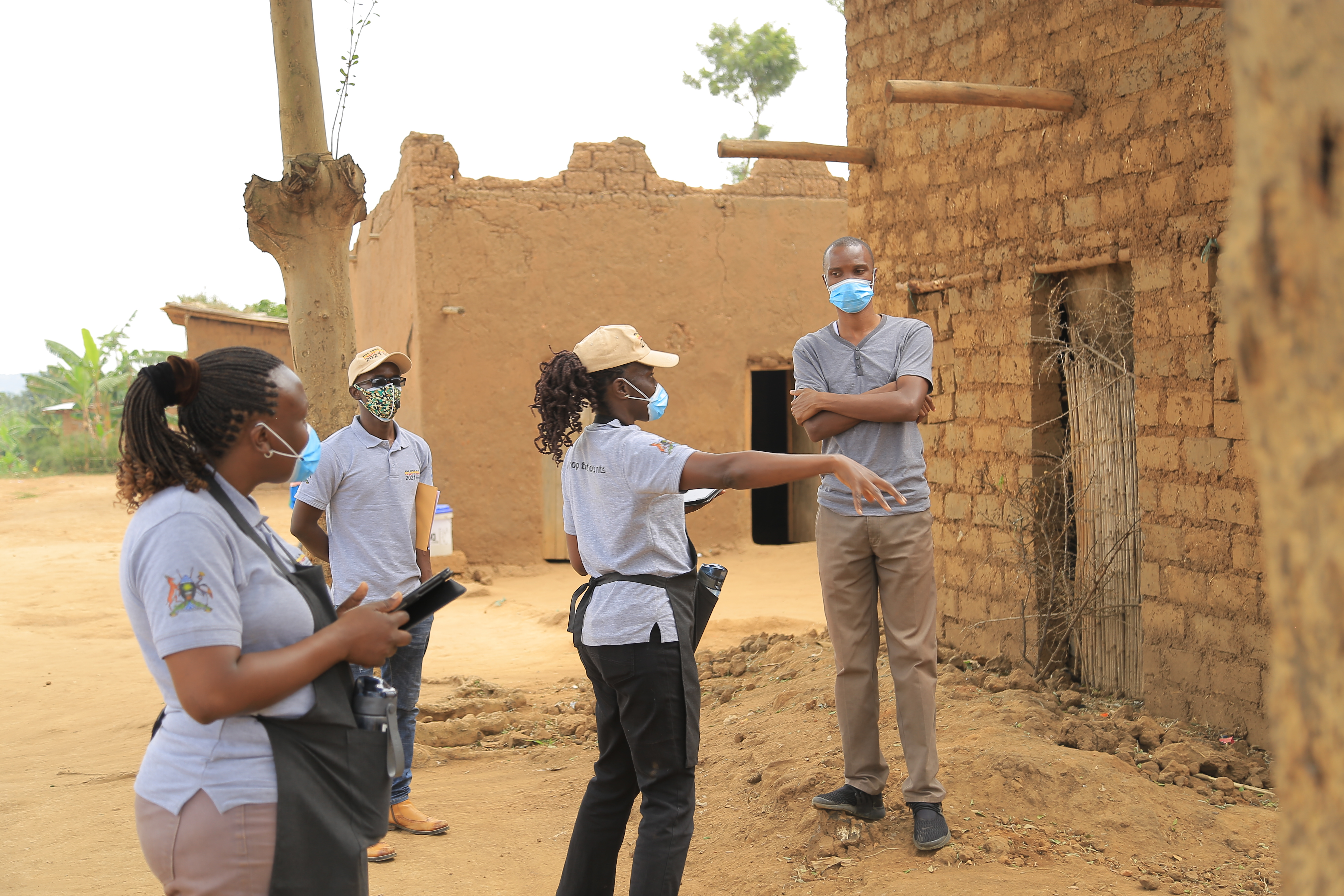
Long-standing economic and political crises in Venezuela have led to an unprecedented diaspora throughout Latin America and the world. In Peru and Colombia, which host nearly 1.5 million and 2.5 million Venezuelan migrants, respectively, ICAP is collaborating with the non-profit AID for AIDS, the CDC, and the ministries of health of both countries to develop innovative strategies to bring comprehensive HIV prevention, care, and treatment services to the Venezuelan diaspora, which otherwise face obstacles to care.
December 18 was International Migrants Day, a day that recognizes the important contributions of migrants as well as highlights the challenges they face. In recent years, conflict, climate change, food insecurity, and other factors have exacerbated forced movement within countries or across borders. While the contributions of migrants have greatly informed the development of robust and emerging communities globally, the risky migratory pathways many must take exposes migrants and mobile populations to health hardship that must be addressed.
About ICAP
A major global health organization that has been improving public health in countries around the world for nearly two decades, ICAP works to transform the health of populations through innovation, science, and global collaboration. Based at Columbia Mailman School of Public Health, ICAP has projects in more than 40 countries, working side-by-side with ministries of health and local governmental, non-governmental, academic, and community partners to confront some of the world’s greatest health challenges. Through evidence-informed programs, meaningful research, tailored technical assistance, effective training and education programs, and rigorous surveillance to measure and evaluate the impact of public health interventions, ICAP aims to realize a global vision of healthy people, empowered communities, and thriving societies. Online at icap.columbia.edu



